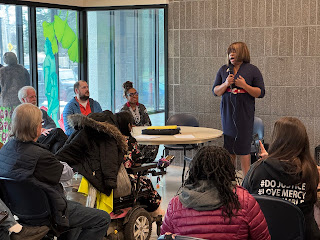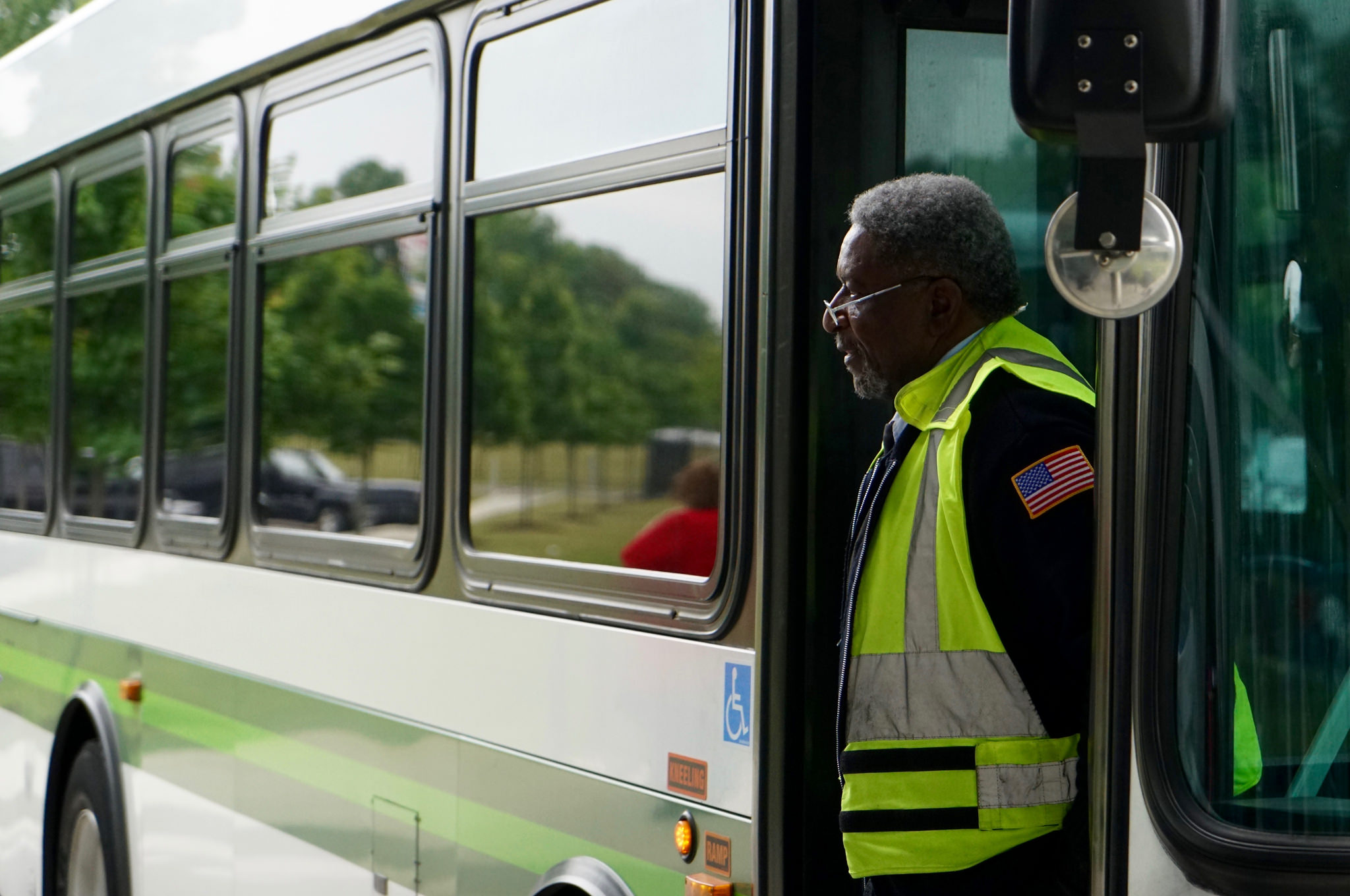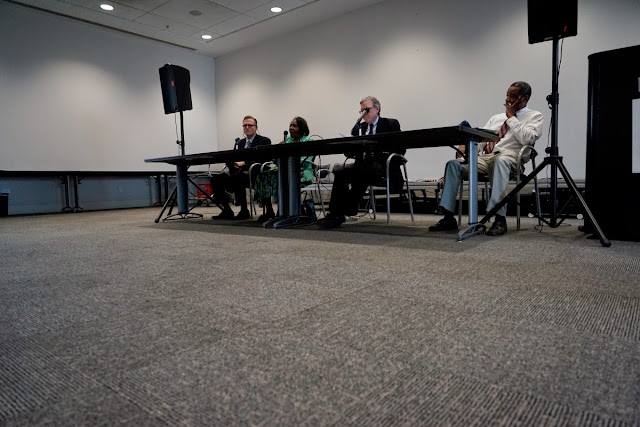Part One - MATA transportation service for people with disabilities not meeting the federal requirements.
By Tim Wheat
Now that TransPro is looking closely at MATA, it is time they turn some attention to the paratransit service. In past meetings, MATA has reported that the fixed route is struggling to match the standards of other transportation systems while MATAplus reports 97% on-time performance with only 3% denial rate.
Most critically, Disability Connection believes that those reported numbers do not give an accurate picture of the paratransit service. Very simply, the paratransit service is capacity constrained because a certified rider with a disability can be confident they will not receive a ride when they request one the next day. MATAplus riders know they must call three days in advance to have any hope of getting a ride.
To use the fixed route, you only need to go to a bus stop, paratransit riders must be certified and must schedule rides one to three days in advance. This difference in the service is allowed in the thirty-five year-old Americans with Disabilities Act, but the paratransit service still has a responsibility to be comparable to the fixed-route. And the standard is that a rider must be able schedule a trip for the next day.
The ADA requires transportation service to have a capacity that will meet the needs of riders that request a ride the day before they need it. It also makes clear that half of the capacity should be retained for the flexible schedules of people with disabilities. The maximum amount of time is to make a reservation three days in advance, but MATA begins booking trips three days in advance, fills to capacity and rarely takes requests one or two days prior to travel. This past summer and fall, DCM sampled MATAplus and asked riders to call and request a trip the next day. Not one caller was able to schedule a trip. Although the MATAplus Rider’s Guide says “Customers can make a reservation for trip(s) from one (1) to three (3) days in advance,” riders know that if you do not call early, three days prior to your trip, you will be told that there are no scheduled times available.
While MATA reports a minimal denial rate, they have not been taking next-day reservations and have trained the ridership to call three days in advance of a needed trip.
This problem is not new. We want TransPro to know that MATAplus has had issues with this in the past. Twenty years ago the FTA found Capacity Constraints and five years ago, during the heart of COVID, the FTA found:
MATA is denying a significant portion of trip requests for MATAplus service, and is undercounting its denials, either by mis-coding certain denials or not tracking them.
More specifically, the report notes how MATA reservation agents are denying and underreporting denials. First, the agents directly denied trips, according to the 2020 ADA Paratransit Compliance Review, MATAplus denied customers, “...particularly for trip requests made one or two days in advance (p. 37)…” These direct denials were theoretically counted, however, the report also notes that some denials were not documented. This process was made simple because once denied, the reservation agent could simply move on to the next call.
Secondly, the caller may accept a trip scheduled beyond the sixty-minute reservation window and it was not noted as a denial. The MATAplus Riders Guide provides a explanation:
A rider may still accept an alternative pick-up time that is more than one (1) hour from the requested pick-up time will be considered a trip denial. (p. 13)
Because the rider accepted the trip, the FTA found that MATA was just not considering these late reservations a denial.
MATA reservation agents were also accepting a trip request to a location, but stating directly that they could not book a return trip. Rather than this being logged as a trip denial, it was considered a “trip refusal” and a trip denial. This bureaucratic trick diluted the number of denials while not providing anyone with transportation.The report further says that the software was not properly set up and MATA agents were not able to see all the trip possibilities. The obvious result is that people who called were denied trips when MATAplus had ride options. MATAplus riders also were not provided with a full range of potential trips and either took reservations that were not ideal to the rider or they declined the ride. The FTA report additionally states that MATA staff only searched for that specific time and did not negotiate further with riders for a time within the reservation window. MATA agents also used the term advanced cancellation rather than denial.
Finally, the report notes that MATA agents directly told riders that they had to call three days in advance to get a ride. The training of MATAplus riders to call three days ahead began five years ago and clearly continues at this time. When DCM sampled MATAplus rider’s request for next-day trips, this was misinformation that the MATA agents continued to use.
Riders of the system also feel that there is a very obvious operational capacity constraint. MATAplus riders are often picked up in vehicles that advertise the “Ready Ride,” service at MATA. People in the disability community cannot help but feel that the reason there are no buses to give people with disabilities rides is because those vehicles are used for other services.
John Lewis' voice resonated at the MATA board meeting as he illuminated the profound meaning of the Community Commitment score. It's not simply about buses running on schedule, he insisted, but about acknowledging the very real impact on individuals when MATA cannot even get a bus on the road. For Lewis, this score serves as a stark reminder of unmet needs and the daily challenges faced by those who rely on consistent and reliable transportation.
We ask the MATA and TransPro not to exclude MATAplus from this Community Commitment philosophy. Refusing attempts to schedule trips one and two days in advance should be scored like a bus not even leaving the yard. We would give MATAplus a Community Commitment score of roughly 33 percent, like not having two out of three buses even leaving the yard. A truly effective MATA demands a functional paratransit system, and rectifying this inequity must be a priority before TransPro concludes its work.
NEXT WEEK: Disability Connection Midsouth offers solutions
Read Part Two: https://mciljournal.blogspot.com/2025/05/mataplus-capacity-constraints-part-2.html


.jpg)
.jpg)







.jpg)




